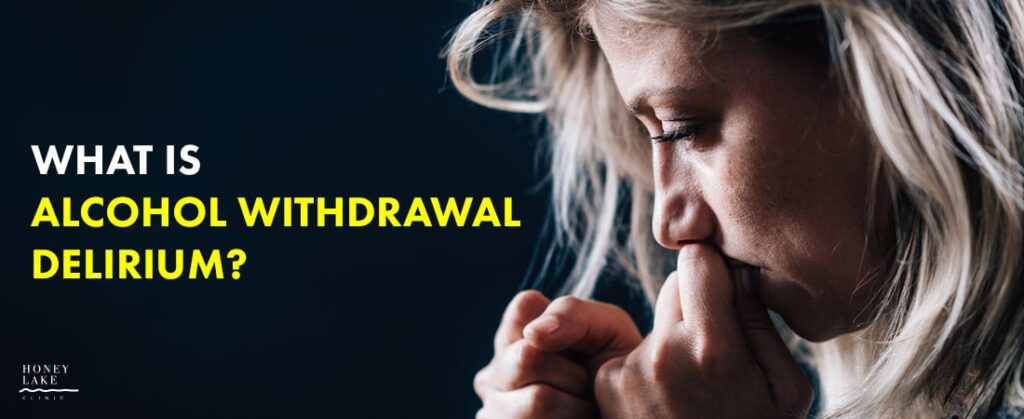What is Alcohol Withdrawal Delirium?
Alcohol Withdrawal Delirium (AWD), is a most severe form of alcohol withdrawal. It is also called delirium tremens (DTs). The condition can be life threatening. Not everyone who is dependent on alcohol will go through the DTs when they stop drinking. But there is no way to predict who will go and who will not experience DTs.
You’re at risk of developing AWD if you have:
- been drinking heavily for a long time
- a history of alcohol withdrawal
- a history of AWD
- other health problems in addition to alcoholism
- a history of seizure disorder or other brain damage
All heavy, long-term drinkers are at risk of AWD. The Centers for Disease Control and Prevention defines heavy drinking as 15 drinks a week for men, and eight drinks a week for women. The following are the equivalent of one drink:
- 1.5 ounces of distilled spirits or liquor, including gin, rum, vodka, and whiskey
- 5 ounces of wine
- 8 ounces of malt liquor
- 12 ounces of beer
If you or someone you love has a problem with alcohol, we can help. Call and speak confidentially with one of our counselors right now at (844) 747-7772.
According to Dr. Benzio from Honey Lake Clinic, excessive drinking impacts the nervous system. If you drink daily, your body can become dependent on alcohol over time. Alcohol suppresses certain neurotransmitters in your brain. This is what causes you to feel relaxed while you drink. Suddenly stopping or significantly reducing the amount of alcohol you consume, can trigger alcohol withdrawal.
Symptoms of Alcohol Withdrawal Delirium
Symptoms of AWD usually occur within a few days of stopping or decreasing alcohol use. Symptoms of AWD may include:
- agitation or irritability
- anxiety
- chest pain
- confusion
- delirium (an extremely disturbed state of mind)
- delusions (irrationally believing things that are untrue)
- excessive sweating
- excitement
- eye and muscle movement problems
- fatigue
- fear
- fever
- hallucinations (seeing or hearing things that aren’t there)
- increased heart rate or breathing rate
- increased startle reflex (an exaggerated reaction to unexpected stimuli)
- involuntary muscle contractions
- nausea
- nightmares
- restlessness
- seizures
- sensitivity to light, sound, or touch
- stomach pain
- sudden mood changes
If you’re concerned about the symptoms you or someone you love is experiencing during alcohol withdrawal, you should speak to your doctor immediately.
How alcohol withdrawal delirium is diagnosed
Your doctor will review your medical history, ask about your symptoms, and conduct a physical exam. Some signs your doctor will look for include:
- hand tremors
- irregular heart rate
- dehydration
- fever
Your doctor may also request some lab work which will provide information on just what’s happening within your system.
How alcohol withdrawal delirium is treated
Treatments for AWD may include:
- intravenous fluids
- anticonvulsants to prevent or stop seizures
- sedatives to calm agitation and treat anxiety
- antipsychotic medications to prevent hallucinations
- medication to reduce fever and body aches
- treatment for other alcohol-related conditions
- rehabilitation to help you stop drinking
Physical Recovery from Alcoholism
Alcohol dependency is at least partially defined by its physical aspects. These include changes in brain chemistry that lead to cravings when alcohol consumption ceases. As you get sober, the cravings will gradually decrease in intensity until they are no longer much of a factor.
Psychological Addiction, Alcoholism and Recovery
Physical cravings can cause a relapse in the early stages of recovery, before they begin to decline in their severity. But psychological cravings for alcohol are an entirely different matter. These powerful urges are triggered by life circumstances and events that never completely lose their ability to provoke a response. Addiction doesn’t happen in a vacuum. These are triggers—and you’ll benefit from education, counseling and therapy to reframe your understanding of these triggers and gain the skills necessary to manage them.
Recovering from alcoholism means recovering your life. We can help. Let us assist you in every step towards a complete recovery.
At Honey Lake Clinic, we believe faith-based treatment, encompassing your spiritual, physical and mental health, will provide you with the long-lasting tools and knowledge you need to break alcohol’s grip.
